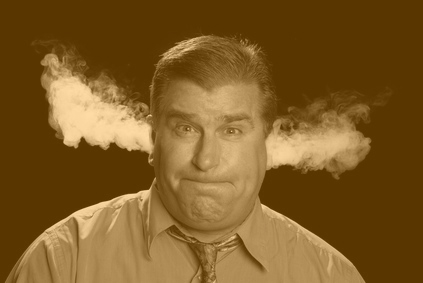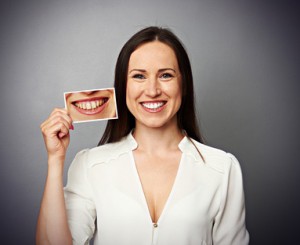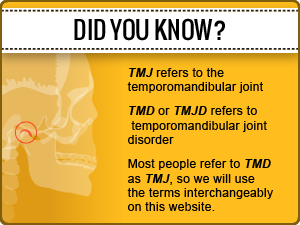Ear Pain, Ringing & Congestion:
Diagnosis & Treatment of Orofacial Pain Conditions that Affect the EarsIs ear pain, ringing or congestion impacting your quality of life?
 Do you suffer from ear pain, ringing in your ears or congestion? If these sensations are having an impact on your quality of life, you are not alone.
Do you suffer from ear pain, ringing in your ears or congestion? If these sensations are having an impact on your quality of life, you are not alone.
There are many people have put up with these annoying symptoms for years and may even have been to their doctor and even treated with antibiotics but have not been able to find an effective relief. If this is the case, then it is possible or probable that you have a temporomandibular jaw problem (TMJ) or a Myofascial pain (MPD) Disorder.
The TMJ or TMJoint is the joint at both sides of your mouth that connects the jaw to the rest of the skull. TMJ problems are often more easily detected by a dentist who has been trained in physiologic dentistry.
Few people think straight away that a dentist could help so the problem can go untreated for far too long. Many Ear Nose and Throat Physicians (ENT) are very aware of TMJ problems. It was actually an Otolaryngologist or ENT that first described TMJ symptoms and related them to the bite. The ENT was Dr Costen in St Louis. TMJ Dysfunction was originally called Costen’s Syndrome.
A more common moniker today is “The Great Imposter” That is because most patients with TMJ disorders have multiple diagnosis (misdiagnosis) prior to referral to a trained physiologic dentist.
Do I have TMJ Disorder?
Symptoms include migraines, neck pain, jaw pain, lower back pain, snoring, sleep apnea. Use our Free TMJ Disorder Assessment ToolsWhere does TMJ ear pain come from?
If your ‘bite’ is misaligned then you may be putting extra pressure on the nerves in your TMJ when you chew, yawn or talk. Your jaw muscles may get tensed up whenever your jaw is tightened. The nerve that is affected is called the trigeminal nerve which is often called the dentists nerve because it goes to the teeth, gums, jaw muscles,and TMJoints. The same nerve helps to send messages about chewing as well as connecting two key ear muscles in your face.
If your bite is not aligned properly, the nerve can cause tinnitus and earache. It’s not actually an ear infection but just an irritation that is caused by the activity in your trigeminal nerve. One of these muscles goes to the eardrum and is called the Tensor Tympani. It can create the tone of noise by stretching the ear drum similar to changing the tone of a guitar by tightening the strings. The other muscle is a jaw muscle but they used to be a single muscle (Medial Pterygoid and Tensor Tympani) early in our development. They share the same trigeminal nerve connections.
If you are experiencing tinnitus and it is related to your TMJ, then you might have other symptoms like any of the following:
- head, back and neck and pain
- dizzy spells
- ear pain
- Ear infections not relieved by antibiotics
- ear ringing
- ear congestion
- loss of hearing
- stuffed up ears
- sinus pain
- sore throat often related to the same muscle that tenses the ear drum
- migraines and headache
- blurred vision
The symptoms above may help to confirm that your ear pain is something to do with your bite alignment and your TMJ.
Imagine life without the noise or pain; Better yet, Live It
 There is no need these days to suffer from TMJ related problems as there are ways of providing relief. There may be dental solutions which will help.
There is no need these days to suffer from TMJ related problems as there are ways of providing relief. There may be dental solutions which will help.
Before any irreversible treatment takes place, we will confirm that all other causes of your pain have been eliminated. This includes ENT evaluation. From that point, we will use an electrical stimulator at low frequency to massage the muscles surrounding the TMJ. There are many types of noises patients hear. The presence of additional symptom to tinnitus is a good sign in treatment. High Pitch tinnitus with no other symptoms can be the most difficult to treat.
Once the muscles relaxed, we will determine the best position for your bite and will fit an orthotic appliance over your teeth to ease the problem of misalignment. An orthotic looks a bit like a tray, and fits over your lower or upper teeth to keep your jaws in the best position.
You will be advised to wear the orthotic until your symptoms have eased, this can happen immediately almost feeling like magic while in other cases improvement is more gradual taking days, weeks or even months to resolve. Almost all patients have significant improvement within the first few visits.
Prior to continuing treatment we like to see continued improvement for 6 weeks or more before initiating phase 2 treatment. This might seem a long time, but it will be worth the wait to be able to relax without ringing in the ears and unexplained earache. Waiting helps insure that treatment success is not just temporary.
Say goodbye to your ear problems
If you have tried to solve your ear pain, ringing or congestion problems and haven’t had any success, then it may be time to consider a dental solution. While we call this a dental solution it is actually a medical solution that only a trained dentist can perform.
A thorough examination and history is the first step to make sure that the ear sensations you have been experiencing are related to bad bite, unhealthy jaw muscles and your TMJ. If the diagnosis seems certain, then by realigning your bite and relaxing the muscles and unloading excess pressure on your TMJ (TMJoints), your symptoms could be relieved.
Remember, this relief occurs because your dentist removes the underlying bite problems that are impediments to healing. Successful treatment results in healthy normal function of your jaw muscles, jaw joints, teeth and head posture.
Diagnosis and treatment of ear congestion, ear pain and ringing, humming clicking noises in the ear is part of overall diagnosis regimen for orofacial pain. Elimination of many symptoms is easy with neuromuscular dentistry helping in the differential diagnosis of orofacial pain disorders.


0 Comments